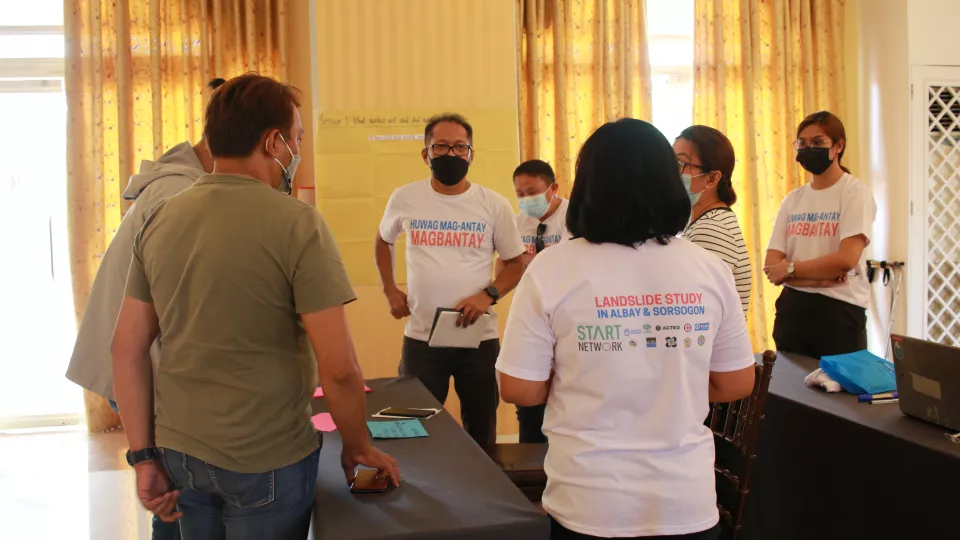
Search

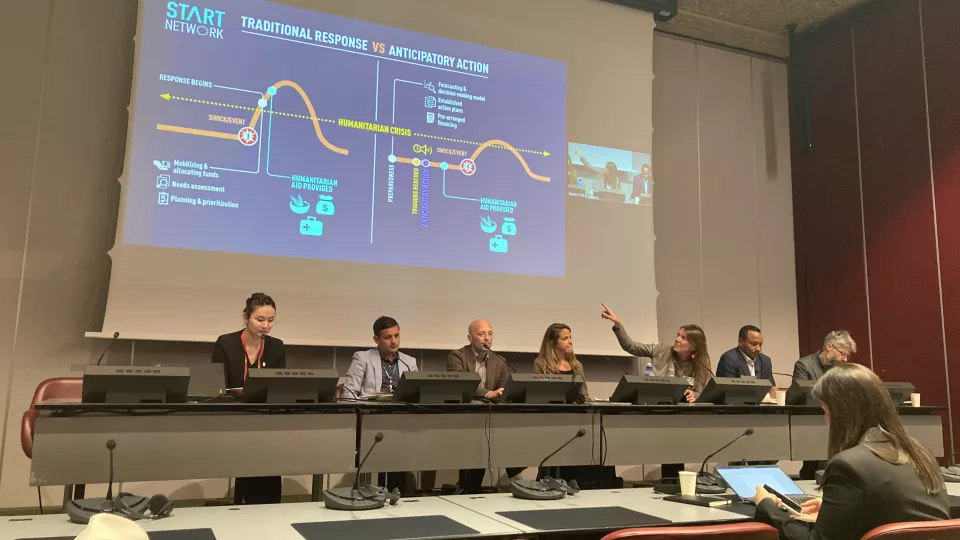
Start Network at the Humanitarian Networks and Partnerships Week (HNPW) 2024

Building sustainable partnerships through unrestricted funding
The exact rate of ICR received by implementing organisations varies and is often a process of negotiation. However, as a ballpark figure, it is usually between 7-10%.
Blockchain pilot II: summary of lessons
In 2016, a €50,000 grant to Start Network from the government of Estonia, which is leading the world in its drive to adopt the new technology, enabled us to pilot blockchain for humanitarian financing. So, in 2017 Start Network formed a partnership with a start-up social enterprise Disberse to push forward our plan to test blockchain in the delivery of humanitarian finance. Using the Disberse platform, we set out to test blockchain in a series of small disbursements. The pilot involved the creation of digital wallets on the blockchain that donors could use the transfer funding to NGOs, the NGO could then use its digital wallet to transfer the funding onto country teams. Through the pilot, we aimed to prove that blockchain could potentially be used to speed up the distribution of aid funding and trace exactly how it is spent. In this 'Blockchain Pilot II: summary of lessons' piece the Start Network, Disberse, Trócaire Ireland, Trócaire Rwanda and Caritas Rwanda review the lessons learnt during the implementation of the pilot analyse whether blockchain helped to make the delivery of humanitarian aid more effective, transparent and accountable
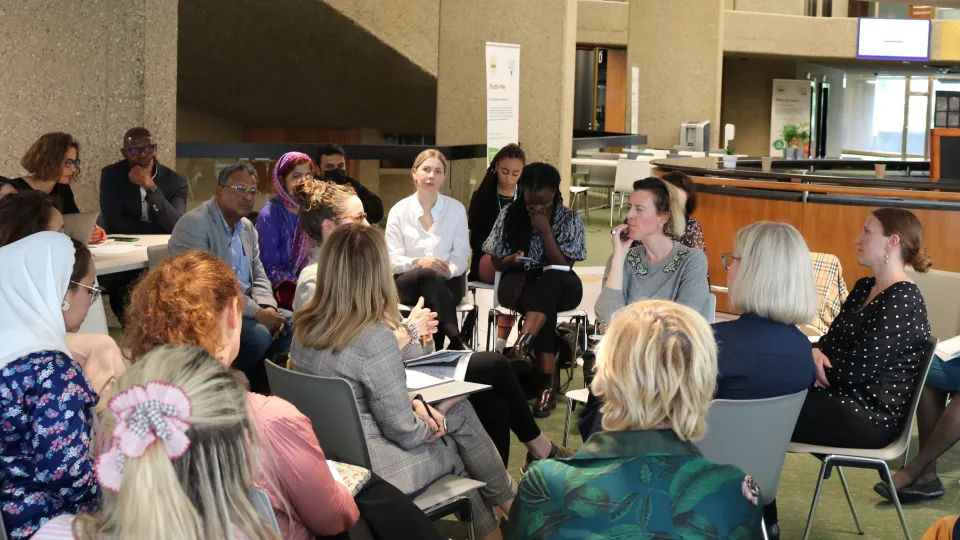
Start Network at the Humanitarian Networks and Partnerships Week (HNPW) 2025
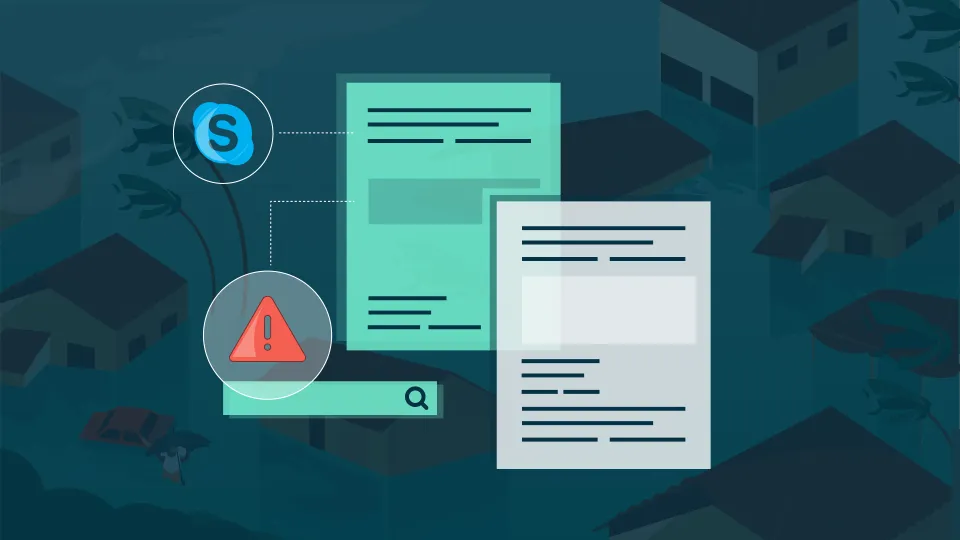
Start Fund Training
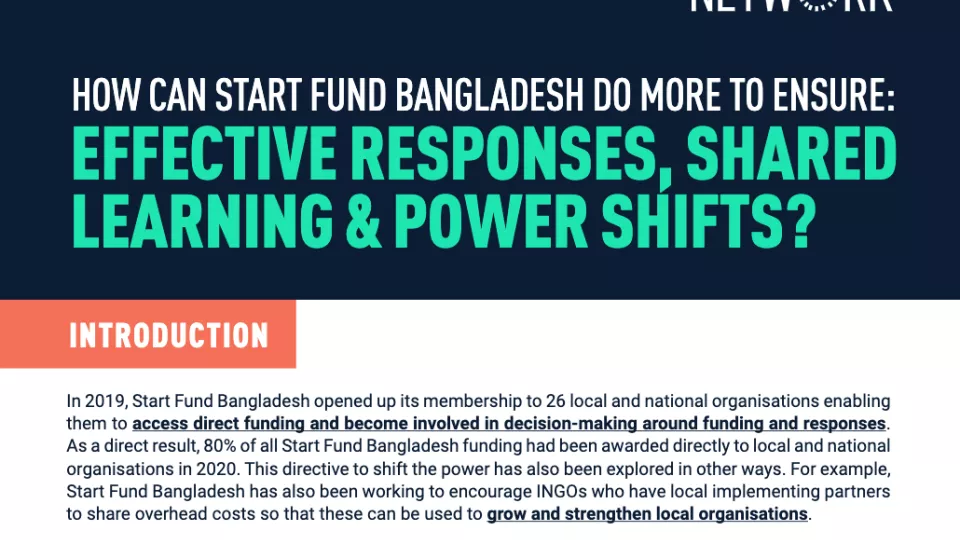
3 lessons from Start Fund Bangladesh
In 2019, Start Fund Bangladesh opened up its membership to 26 local and national organisations enabling them to access direct funding and become involved in decision-making around funding and responses. As a direct result, 80% of all Start Fund Bangladesh funding had been awarded directly to local and national organisations in 2020. This directive to shift the power has also been explored in other ways. For example, Start Fund Bangladesh has also been working to encourage INGOs who have local implementing partners to share overhead costs so that these can be used to grow and strengthen local organisations. To understand more about further changes that Start Fund Bangladesh could make, we listened to some of the reflections of Sina Chowdhury and Sirajul Islam who work for two of the local organisations that joined in 2019. The verbatim quotes from the interviews provide a powerful and rich narrative around their experience working with Start Fund Bangladesh and as humanitarians and have led us to formulate three main lessons for the Start Network: BE MORE INCLUSIVE TO BE MORE EFFECTIVE; UPSKILL TO EMPOWER; and CHAMPION FOR CHANGE. This report would be of interest to all those working towards a system change to a more locally led humanitarian system that is more accountable to those affected by crisis.
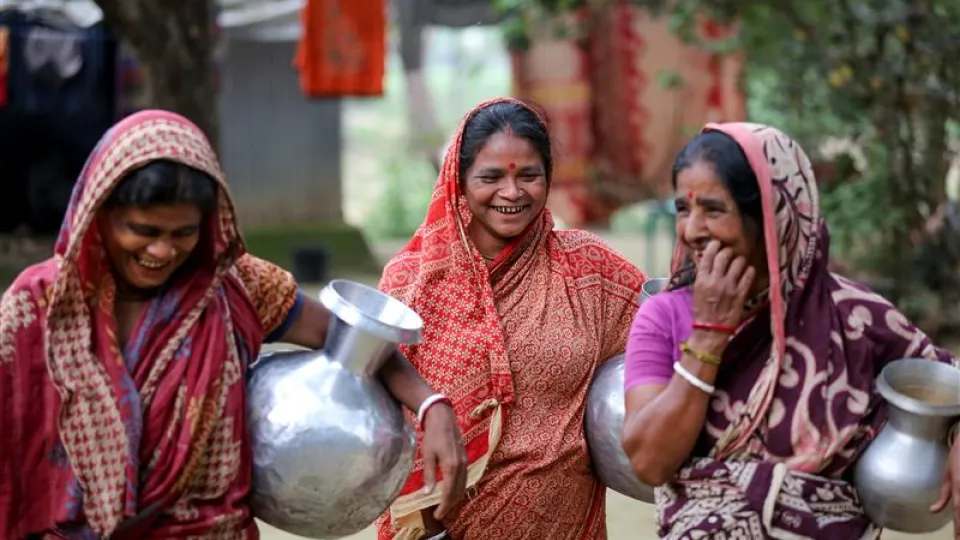
Bangladesh Hub
Start Bangladesh is a locally led humanitarian system that aims to catalyse the transformation of humanitarian action into an inclusive and community-driven system.
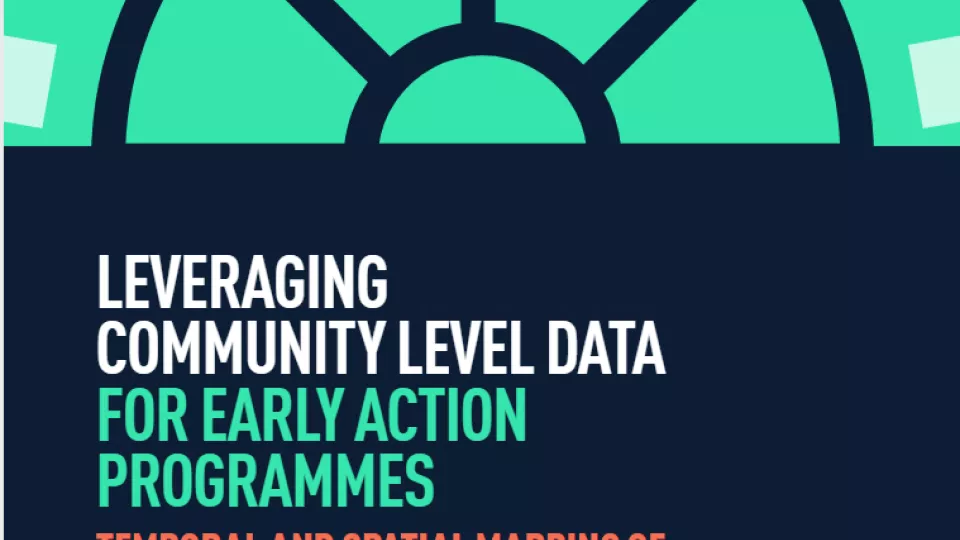
Overview: Leveraging Community Level Data for Early Action Programmes: Temporal and Spatial Mapping of Community Livelihoods in Senegal
Start Network implements a range of early action programmes to enable communities to act ahead of potential hazards. One of the challenges involved in delivering impactful early action interventions is ensuring that assistance reaches community members at the right time, i.e., before some community members are forced to resort to negative coping mechanisms such as taking children out of school, cutting down on meals or incurring debts for food provision. Intervention timing can differ within the same country and from one region or community to another. Qualitative data collected from community members provides crucial insights that help us determine the right windows of opportunity for interventions. However, this longitudinal qualitative data requires time to analyse and infer lessons, which can make it difficult for decision makers who have little time to read detailed qualitative accounts. Start Network, through our ARC Replica programme, collected qualitative data about the lived experiences of community members in various parts of Senegal over a six month period. This article explains the visualisations curated via Data Spoiler, and outlines the key findings from the monthly check-ins across 22 sentinel sites. It is intended for data practitioners and decision makers to enable them to: 1) Understand how community voices can inform early action programme design and 2) Explore new ways of using qualitative data to inform decision making around early action

Governance bodies
The Start Network is governed by its Board of Trustees, which takes its steer from the membership, represented by the Assembly.
